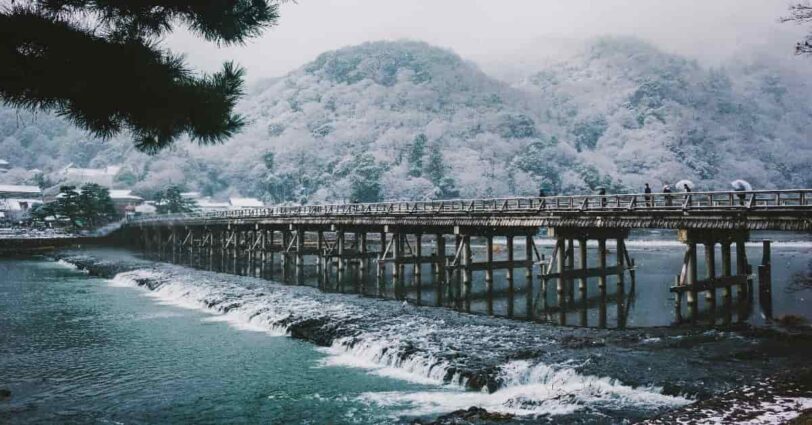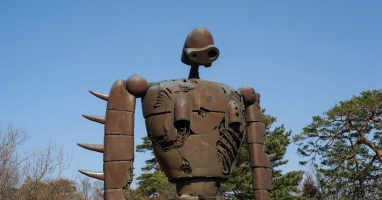I wrote this article in Japanese and translated it into English using ChatGPT. I also used ChatGPT to create the English article title. I did my best to correct any translation mistakes, but please let me know if you find any errors. By the way, I did not use ChatGPT when writing the Japanese article. The entire article was written from scratch by me, Saikawa Goto.
Introduction
Movies and books covered in this article

Three takeaways from this article
- I happened to see this movie during the final week of its release, and I’m so glad I saw it in a theater.
- Thanks to the artist who provided the voice acting with their overwhelming singing ability, the movie has become an incredible “live performance.”
- Inu-Oh actually existed and apparently enthralled the people of Muromachi, but it is a sad fact that the work has not been passed down to modern times.
Self-introduction article


Published Kindle books(Free on Kindle Unlimited)
“The genius Einstein: An easy-to-understand book about interesting science advances that is not too simple based on his life and discoveries: Theory of Relativity, Cosmology and Quantum Theory”
“Why is “lack of imagination” called “communication skills”?: Japanese-specific”negative” communication”
The quotes used in this article are based on notes taken at the movie theater from movies in Japanese and are not direct quotes from the foreign language original movies, even if they exist.
A Stunning “Strange Story” Created by a Gathering of Geniuses! I was Shocked like being Punched in the Head after Watching “Inu-Oh” Which I had No Intention of Watching

I originally had no plans to watch the movie “Inu-Oh”. I knew it was directed by Yuasa Masaaki, who also directed “The Night Is Short, Walk on Girl,” so I thought I should have been eagerly awaiting its release to the public if always. However, I wasn’t planning to watch it because the theme was “The Heike Story”. I thought, “Are they really going to deal with ‘The Heike Story’?” Even when I watched the trailer at the theater, there wasn’t anything particularly appealing. I don’t have the habit of checking reviews before watching a movie, so I hadn’t received any information that the movie had an incredibly good reputation. That’s why I had been thinking, “I don’t really need to watch it.”

I decided to watch it by chance. I was thinking, “I want to watch one movie after work on a weekday night, but the screening schedule doesn’t fit at all,” when I stumbled upon “Inu-Oh” while browsing the movie theater’s website. It had the perfect start time to watch after work. This is it. Without any particular expectations, I headed to the theater.
It was an amazing masterpiece. Was I about to miss such a great work? It was dangerous. This movie is genius. It’s too amazing.

I went home and searched about “Inu-Oh.” I was surprised to find out that the original work was by Furukawa Hideo. Seriously? If it’s a story by Furukawa Hideo, it would be a crazy story. And “Inu-Oh” is based on a real Noh actor. Well, of course, it wouldn’t be as strange as depicted in this movie, but can such an interesting story be created based on a real person? As expected of Furukawa Hideo. If I had known that the original work was by Furukawa Hideo, I would have watched it earlier.
It was an incredible crazy animation that brought together top creators who worked on works that even I know, such as character drafts by Matsumoto Taiyo, script by Nogi Akiko, and music by Ootomo Yoshihide.
I’m so glad I watched it. I saw it just in time, during the last week of its release. It was dangerous. I was about to die without seeing this amazing masterpiece, especially the “music movie” that makes me feel like I have to see it in a movie theater.

I’m not exaggerating, I really was that shocked and moved by it.
Characteristics as “Music Movies” and a Brief Summary of the Plot
“Inu-Oh” is an anime movie, but more than half of it could be called a “music movie”. These days, I think you can watch live performances by artists online, but this is really like watching a live stream of an artist’s concert in a movie theater. The singing in “Inu-Oh” is really amazing, but that’s to be expected since the voice actor is actually a professional singer named Avu-chan from the band “Ziyoou-vachi (Queen Bee)”. I didn’t know anything about him/her, but his/her singing was truly outstanding.

I haven’t read Furukawa Hideo’s original work, so this is just my imagination, but I think the movie expanded the “music” part quite a bit. In a novel, we can’t convey sound, but we can in a movie. Knowing Furukawa Hideo, he must have created a world with an extraordinary setting and a vast amount of text, but in the movie, I imagine they extracted parts of the original work that could be amplified as “music parts” and tailored them into the movie. I wonder what the actual story is like in the original work?

The story of the movie starts with a boy named “Tomona.” His family business is to steal “treasure” from the sunken ships of Heike (the clan of Taira no Kiyomori) which rest in Dan-no-ura (a place name in Japan). One day, men with a lot of money from the capital city of Kyoto come to their place. They say that they have brought a map which shows the location of one of the “Three Sacred Treasures,” and they want Tomona’s family to find it.
At that time, Imperial Court in Japan was divided into two, the Northern Court and the Southern Court (in Japan, there was a time when two emperors coexisted, and the respective Imperial Courts with each emperor were called Hokucho and Nancho). The Northern Court considered the “Three Sacred Treasures” as the symbol of their authority, and they desperately wanted to obtain at least one of them. Tomona’s father, who had been living there for many years, tried to refuse their request, saying “I have never seen such a thing.” However, he decided to accept their request following instructions secretly sent by Tomona from outside the house.
They found it. What they found was a sword. When the father drew the sword from its scabbard, he was killed by the flash of the sword, and Tomona became blind.

Tomona, now blind, leaves his village determined to avenge his father. On his journey, he comes across a biwa hoshi (a blind monk who plays a musical instrument called a biwa and sings and tells stories). Tomona called the monk “big brother” and traveled with him to improve his biwa-playing skills.
After years of wandering, they arrived in Kyoto where Tomona joined a skilled group of biwa players and changed his name to Tomoichi.
On the other hand, a man with a gourd mask and an abnormally long arm is sprinting through the city of Kyoto. Who could he be?
He was born into “Hiei-za,” which inherits the tradition of sarugaku (a traditional Japanese performing art). However, due to his terrifying “the nature of the variant,” he is not treated as a “successor of sarugaku” in Hiei-za. Instead, they try to instill sarugaku in his sons other than the variant. However, they do not reach the level that their father desires.

One night during a fire, the biwa hoshi named Tomoichi happened to meet a mysterious “the variant“on a bridge. “The variant“ sometimes takes off its mask and enjoys scaring people with its terrifying appearance, but Tomoichi, who is blind, is not surprised when the “the variant“ reveals his true face. “The variant“ notices the presence of the biwa and asks, “Can you play it?” Tomoichi answers confidently, “Of course,” and begins to play. On the bridge, “the variant“ improvises a dance to the sound of the biwa.

Tomoichi asks the “the variant“ for his name, but he answers that he doesn’t have one. However, he quickly adds, “I’ve already decided on one.”
“The variant“ will later become “Inu-Oh,” who will captivate the people of Kyoto in a frenzy.

Anyway, the “Live Feeling” is Amazing in this Movie
The movie “Inu-Oh” has an interesting story, but as mentioned earlier, more than half of it can be considered a “music movie,” and it’s great that you can feel like you’re watching a live performance. However, I’m not someone who has any connection to music concerts or festivals, and I’m not the type to get excited just by experiencing music. Still, while watching this movie, I could feel my own excitement rising.
What’s interesting is that the “production” that should be “over-technology” during the time when Tomoichi and Inu-Oh were alive is incorporated. It’s hard to explain in words, but it’s like this. For example, a large screen that looks like it’s covered with a lot of white cloth is set up vertically, and something like a whale shadow puppet is projected onto it. Inu-Oh, suspended from above by ropes, moves around the screen like he’s fighting with the whale shadow puppet. Such modern ideas for production are incorporated throughout the movie.

Inu-Oh was a real person, but his fame and works no longer exist today. Perhaps there is a description in some book that says something like, “It enthused the people of Muromachi, but there are no records of what kind of performances or productions Inu-Oh used to excite the people. Therefore, I think it’s safe to consider the “music film” part of this movie as mostly fictional. After all, there are many scenes in which the production team of the movie ‘Inu-Oh’ can be felt “playing around”.
For example, Inu-Oh and the audience dance a dance that looks like “breakdance” and there are rhythms of hand clapping and foot stomping that are familiar from Queen’s “We Will Rock You”. They do whatever they want. There are probably many other elements that I, who am not familiar with music, didn’t notice, but are scattered throughout the movie.

From such descriptions, you can catch a glimpse of the playful nature of the production team, thinking “since there is no historical fact left, let’s do whatever we want.” And that’s why I think the “music movie” part is so much fun. The visuals have an old-fashioned feel like the Muromachi Period, but the music that rides on the sound of the biwa and the “live performance” is exactly modern, and the tremendous gap is so fresh.

Also, as mentioned briefly at the beginning, Avu-chan, who played the role of Inu-Oh, was fantastic. Not only did he/she liven up the “live” with overwhelming singing ability, but I also felt that he/she was really into the role of Inu-Oh as a voice actor. From the moment he/she appeared, I felt that Avu-chan’s voice injected “reality” into this “monstrous” character, who had a completely mysterious presence. I didn’t even know about Avu-chan’s existence until I saw the end credits, but I found out later that he/she is “gender non-disclosed.” Perhaps Avu-chan’s strong presence himself/herself also became an element that defined the outline of “Inu-Oh.”

If the movie had been released before COVID-19, I think it would have been exciting to have a screening where the audience could sing along together. It would be fun if the singing parts were posted on YouTube in advance so that the audience could practice beforehand, and if they could bring instruments, including the biwa. I don’t know when the planning for “Inu-Oh” started, but it was probably before COVID-19, and I’m sure such ideas were considered. It’s a shame that this idea is now impossible to realize due to the pandemic.
Whether the Work Transcends Time or not
At the end of the movie, the following statement is made:
In this way, ‘Inu-Oh’ excited the people of the Muromachi period, but its name and music have not been passed down to the present day. On the other hand, ‘Fujiwaka,’ who later changed his name to ‘Zeami,’ achieved great success in Sarugaku.

In the story of the movie, “Hiei-za” and “Zeami (Fujiwaka)”, where we know well, are struggling to get into the Imperial Court. It is difficult to understand the situation just from the portrayal in the movie, but probably initially “Hiei-za” was stronger. The father was a skilled person and was also evaluated by the Imperial Court. However, except for Inu-Oh, his sons who couldn’t dance sarugaku that met his father’s expectations. On the other hand, “Zeami (Fujiwaka)” surpassed “Hiei-za” by being liked by the Imperial Court as a result and became a great existence that remains to this day. In short, it was an era when the relationship with the people in power of the time decided the fate of art.

Meanwhile, Inu-Oh provided entertainment to the general public regardless of the Imperial Court. It is depicted in the movie and probably recorded as well. Inu-Oh enthralled the people of Muromachi. However, his entertainment could not transcend the era.
One obvious reason why Inu-Oh’s entertainment could not transcend the era is that the music played for his dancing was created by Tomoichi, a biwa hoshi who narrates the story of “Heike” through songs. Biwa hoshi is an entity that “narrates the story of Heike on the back of songs.” However, the Imperial Court did not want the story of “Heike” to be created and spread on its own. Therefore, their entertainment was regulated, making it difficult to transcend the times. Of course, it was also a time when rich patrons or authority were necessary for art to survive, which may be why Inu-Oh’s entertainment did not remain.

We should consider various factors of the times intertwined in the “Inu-Oh’s entertainment could not transcend the times.”
However, it is interesting to think about the fact that “entertainment that once thrilled people could not transcend the times” by ignoring such things for a moment.
When I was in my 20s, a student from the Tokyo Institute of Technology who worked at the same bookstore as me said, “I only read books by dead writers.” He had a clear belief that “the truth is in the works that have overcome the test of time.” Everyone has different values, but there are also people like him who see “transcending the times” as the “value of the work itself”.

On the other hand, I was reminded of an interesting reference to YouTube in the movie “神は見返りを求める(God Demands Something in Return)” starring Murotsuyoshi (a Japanese actor). The story depicts various human relationships in the process of a woman who was a bottom-ranked YouTuber becoming an instant hit. In the movie, the woman who became popular says to her fans at a signing event, “It’s sad because it’s not something that transcends time like movies or music.” In response, a fan says, “Is something that lasts really that great? I’m saved every day by your videos, and that’s enough.”

This is also one way of thinking. Personally, I’m the type who hardly ever watches YouTube and I don’t want to put YouTube on the same level as movies or music. However, YouTube’s content has become an influential presence for contemporary people. While it is unlikely that YouTube videos will become “entertainment that transcends time,” it is also not correct to view YouTube content as “low-quality” just because of that reason.

It is a difficult story to grasp the essence of because it is not clear how much Inu-Oh excited the people of the Muromachi period, but it is also a story that makes us think about the “value of transcending time.”
Conclusion
I truly felt from the bottom of my heart that “it was good to watch”. Emotions felt after watching a movie vary depending on the work, but I think it’s been a long time since I felt so uplifted.

Honestly, there were many scenes that I felt “I don’t understand at all”, and in my mind, it can be said that it’s a work more towards “unintelligible”. Despite that, I can’t help but wonder why I felt so happy. It was an amazing viewing experience where the feeling of “touching something incredible” rushed in fiercely.
It can be said that it was a miracle to be able to come into contact with this movie in a state of almost zero expectation. As for me, it was a wonderful movie experience where I can confidently say that I encountered the best work in the best possible way.

Published Kindle books(Free on Kindle Unlimited)
“The genius Einstein: An easy-to-understand book about interesting science advances that is not too simple based on his life and discoveries: Theory of Relativity, Cosmology and Quantum Theory”
“Why is “lack of imagination” called “communication skills”?: Japanese-specific”negative” communication”







コメント